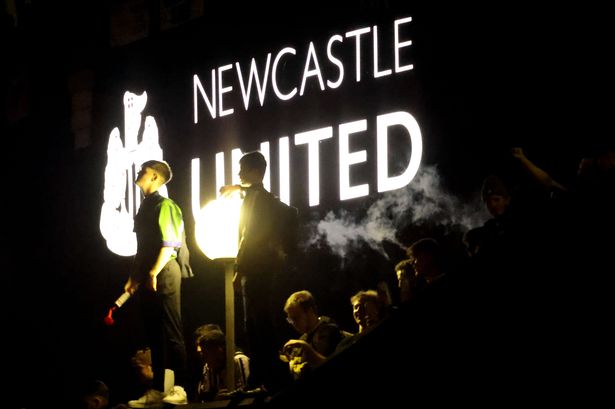It’s on! No place for miserable doom-mongering here! Nope, we’re going full Steve McQueen, revving our metaphorical motorbike and leaping the German-Swiss border to safety. The Great Escape is go!
What’s that you say? He crashes into the barbed wire and gets captured? Oh. Well, that’s OK. We can be James Garner or Donald Pleasance, instead. Maybe Gordon Jackson before he was Cowley in the Professionals. What? They all get captured or shot? Surely, some of them escaped? That’s the name of the film, after all. Three? Out of 76? Ah, maybe we need to re-think our feel-good metaphor…
Or maybe not. After all, as our season stutters to the halfway stage, a series of calamitous, largely self-inflicted mishaps leading to heroic failure is starting to look like a startlingly apt comparison. In fact, if we take at a close look at recent history, then the odds of survival for teams with our current record pretty much match those incarcerated in Stalag Luft III. Distinctly slim.
‘We are a club in transition. We can feel it around us. Communications have improved and small things like SJP being cleaned and S****s D****t signage removed making us all feel better. Nice touches.’
????? @TFMick1892 | #NUFC https://t.co/MIEKFXOKtS
— True Faith: Newcastle United Fanzine and Podcast (@tfNUFC) December 28, 2021
And yet… And yet… if we take a look at recent history, we’re not without some legitimate grounds for optimism. Generally, being in the bottom three halfway through the season does not spell inevitable relegation. Twenty-two of the teams that have found themselves in that position in the last twenty years have ultimately survived. So that’s better than a 1 in 3 chance, and none of those has been taken over mid-season by the richest owners in football history.
And don’t believe the nonsense about 40 points. All but one of the 60 relegated teams from those twenty years ‘ West Ham in 2003 ‘ accrued fewer than 40 points; only four out of the 60 ended on as many as 38 points. The average points tally of the team finishing in 18th place has been 34.35. So, it’s reasonable to expect that somewhere between 34 and 36 points ‘ 7 or 8 more wins ‘ will be enough.
Unfortunately, the lessons of history become rather less encouraging when you take into account our record after 19 games: a solitary win and just 11 points. In the last twenty years, nine teams have reached the halfway stage of the season with a single win and eleven with 11 points or fewer. Of those, only one team survived, West Brom in 2004-05. After scrambling their way to 24 points over the second half of the season, Bryan Robson’s side survived on the final day by a single point from Crystal Palace and Norwich.
However, if we broaden our sample slightly and consider those teams with 13 points or fewer after 19 games, then the outlook is a little more positive. Twenty-four teams have endured a first half of the season that saw them secure 13 points or fewer. Of those, five managed to stay up. As the table below shows, all saw an enormous improvement in form in the second half of the season. And, encouragingly, four of those occasions have come in the last six years.
If we look more closely at these five campaigns, we can see that there’s no single formula for a miraculous turnaround. In fact, sometimes patience is all that was required.
In two of the five cases, for example, these clubs kept same manager all season, Dyche at Burnley and Pearson at Leicester. And bringing hope to our current plight, in two other cases, the managerial change was made much earlier and its effect only felt after a significant period of time had elapsed: Robson was appointed at West Brom at the beginning of November and Allardyce at the beginning of October, but both remained stuck in the bottom three. Only for Swansea in 2016-17 did the appointment of Paul Clement at the end of December coincide with a sudden improvement in results.
Similarly, in three of these five instances of survival, January signings were all but non-existent. Burnley’s sole signing was Peter Crouch on loan, who contributed 6 substitute appearances and no goals. Leicester made only two January signings, one of whom was Mark Schwarzer on loan. West Brom spent nothing, bringing in Kevin Campbell on a free from Everton (3 goals) and, more influentially, Kieran Richardson on loan from Manchester United.
Nice new phone or tablet you've got there! ????
Our Fanzines are compatible for all of them and you can subscribe to us digitally!
Find out how to here: https://t.co/FDn10LXnyB pic.twitter.com/Sgvz2gkKcJ
— True Faith: Newcastle United Fanzine and Podcast (@tfNUFC) December 26, 2021
Swansea invested more heavily, including Jordan Ayew for ‘5 million from Villa, with Neil Taylor moving in the opposite direction. But it was only Sunderland, for whom the January window was a major turning-point. More than ’15 million was spent on six new players. Including Kirchoff and Kon’.
Finally, the pattern of results in these five seasons show three distinct ways to survive:
1. Keeping the faith. After a difficult first half of the season, the Burnley squad and manager came good in 2009 without any dramatic interventions or last-minute miracles. In fact, they lost their last three matches. For them, the key was a run from January in which they were unbeaten in 8 games, after which they never dropped into the relegation zone again.
2. Final-day miracle. For West Brom in 2005, there was no second-half surge. After 23 matches they still had only 13 points. Four wins from eight followed, but then they failed to win in their next six matches up to the final day of the season, on which any three of four teams could have gone down. In the event only West Brom won, 2-0 at home to Portsmouth, while Norwich and Southampton lost and Palace could only draw.
3. Remarkable run-ins. If there’s any lesson to learn, then it’s that it’s never too late. In 2017, Swansea had dropped back into the bottom three with five games to go, only to win four of those last five matches. Four points adrift with six games to go in 2016, the Mackems went unbeaten, winning three and drawing three to take 12 points from 6 games. Finally, and most spectacularly, Leicester were still bottom and seven points from safety at the beginning of April, with only 19 points from 29 games. There followed 7 wins from the final 9 games and an incredible 22 points from a possible 27.
As the German army closes in and the barbed wire between us and Switzerland looms ever larger, it’s surely these last three examples that we have to bear in mind. Teams that had failed to average even a point per game for more than 30 games, suddenly found a way to average more than two per game in the run-in.
Everything remains possible. Keep the faith.
Matthew Philpotts @mjp19731






All we need to do between now and the end of the season is score three more points than Watford, one more than Burnley and equal the number of points of Norwich. The team is improving and reinforcements will be on their way. All of a sudden it doesn’t sound like such a terrifying task.
HWTL!!!!
The way i see it, only watford & leeds can be caught. both palace & southampton have had a good christmas. So, if we dont beat watford on the 15th then thats it, down we go. But get something at southampton then beat watford though…then its game on !
Well researched, informative and encouraging – a rare combination!
All we need to do between now and the end of the season is score three more points than Watford, one more than Burnley and equal the number of points of Norwich. The team is improving and reinforcements will be on their way. All of a sudden it doesn’t sound like such a terrifying task.
HWTL!!!!